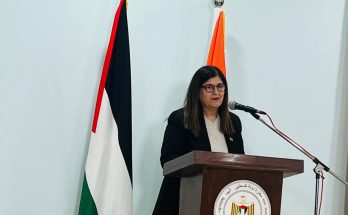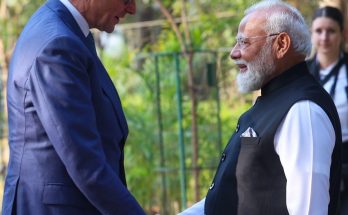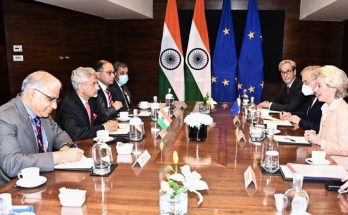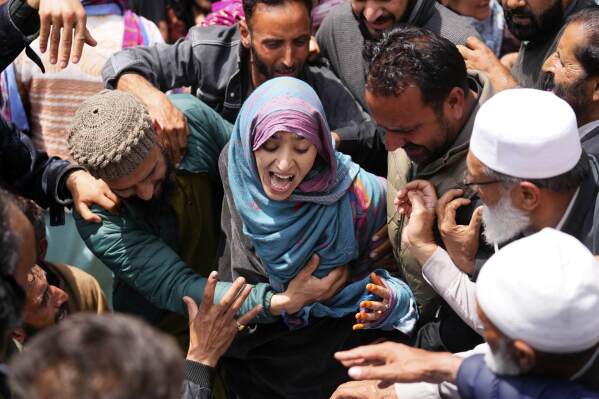
Hours after the barbaric terror attack by militants killing 26 civilians, the Indian government retaliated by announcing a series of punitive diplomatic steps, including freezing the Indus Water Treaty, the closure of the Wagah-Attari border and downsizing of Pakistan’s high commission in New Delhi.
The Cabinet Committee of Security, chaired by Prime Minister Narendra Modi, held a meeting on April 23 and directed all forces to maintain highest level of vigil.
The CCS condemned the attack in the strongest terms and expressed its deepest condolences to the families of the victims and hoped for the early recovery of the injured.
“In the briefing to the CCS, the cross-border linkages of the terrorist attack were brought out. It was noted that this attack came in the wake of the successful holding of elections in the Union Territory and its steady progress towards economic growth and development,” Foreign Secretary Vikram Misri said in the first official comments on the terror strike in Pahalgam that killed 25 Indian tourists and one Nepali national.
The CCS reviewed the overall security situation and directed all forces to maintain high vigil, said India’s top diplomat. “It resolved that the perpetrators of the attack will be brought to justice and their sponsors held to account. As with the recent extradition of Tahawwur Rana, India will be unrelenting in the pursuit of those who have committed acts of terror, or conspired to make them possible.”
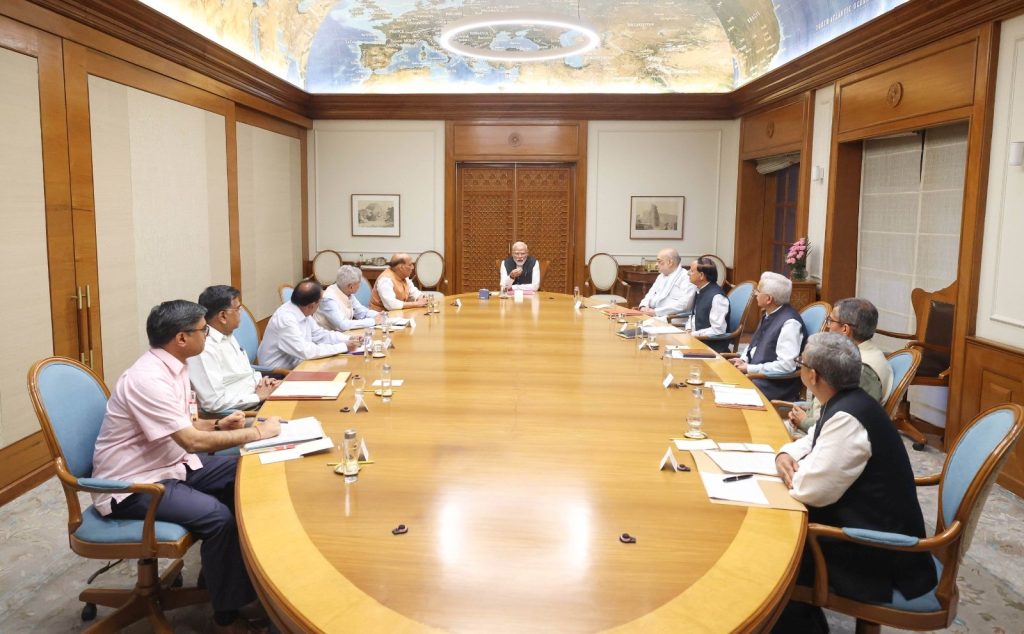 The CCS announced a slew of punitive steps against Pakistan, clearly indicating the assessment of Indian intelligence agencies about the involvement of Pakistan’s deep state – ISI-military combine – in the Pahalgam massacre.
The CCS announced a slew of punitive steps against Pakistan, clearly indicating the assessment of Indian intelligence agencies about the involvement of Pakistan’s deep state – ISI-military combine – in the Pahalgam massacre.
The punitive steps included the following:
(i) The Indus Waters Treaty of 1960 will be held in abeyance with immediate effect, until Pakistan credibly and irrevocably abjures its support for cross-border terrorism.
(ii) The Integrated Check Post Attari will be closed with immediate effect. Those who have crossed over with valid endorsements may return through that route before 01 May 2025.
(iii) Pakistani nationals will not be permitted to travel to India under the SAARC Visa Exemption Scheme (SVES) visas. Any SVES visas issued in the past to Pakistani nationals are deemed cancelled. Any Pakistani national currently in India under SVES visa has 48 hours to leave India.
(iv) The Defence/Military, Naval and Air Advisors in the Pakistani High Commission in New Delhi are declared Persona Non Grata. They have a week to leave India. India will be withdrawing its own Defence/Navy/Air Advisors from the Indian High Commission in Islamabad. These posts in the respective High Commissions are deemed annulled. Five support staff of the Service Advisors will also be withdrawn from both High Commissions.
(v) The overall strength of the High Commissions will be brought down to 30 from the present 55 through further reductions, to be effected by 01 May 2025.
Author Profile
- India Writes Network (www.indiawrites.org) is an emerging think tank and a media-publishing company focused on international affairs & the India Story. Centre for Global India Insights is the research arm of India Writes Network. To subscribe to India and the World, write to editor@indiawrites.org. A venture of TGII Media Private Limited, a leading media, publishing and consultancy company, IWN has carved a niche for balanced and exhaustive reporting and analysis of international affairs. Eminent personalities, politicians, diplomats, authors, strategy gurus and news-makers have contributed to India Writes Network, as also “India and the World,” a magazine focused on global affairs.
Latest entries
 DiplomacyJanuary 5, 2026India walks diplomatic tightrope over US operation in Venezuela
DiplomacyJanuary 5, 2026India walks diplomatic tightrope over US operation in Venezuela India and the WorldNovember 26, 2025G20@20: Africa’s Moment – The Once and Future World Order
India and the WorldNovember 26, 2025G20@20: Africa’s Moment – The Once and Future World Order DiplomacyOctober 4, 2025UNGA Resolution 2758 Must Not Be Distorted, One-China Principle Brooks No Challenge
DiplomacyOctober 4, 2025UNGA Resolution 2758 Must Not Be Distorted, One-China Principle Brooks No Challenge India and the WorldJuly 26, 2025MPs, diplomats laud Operation Sindoor, call for national unity to combat Pakistan-sponsored terror
India and the WorldJuly 26, 2025MPs, diplomats laud Operation Sindoor, call for national unity to combat Pakistan-sponsored terror





